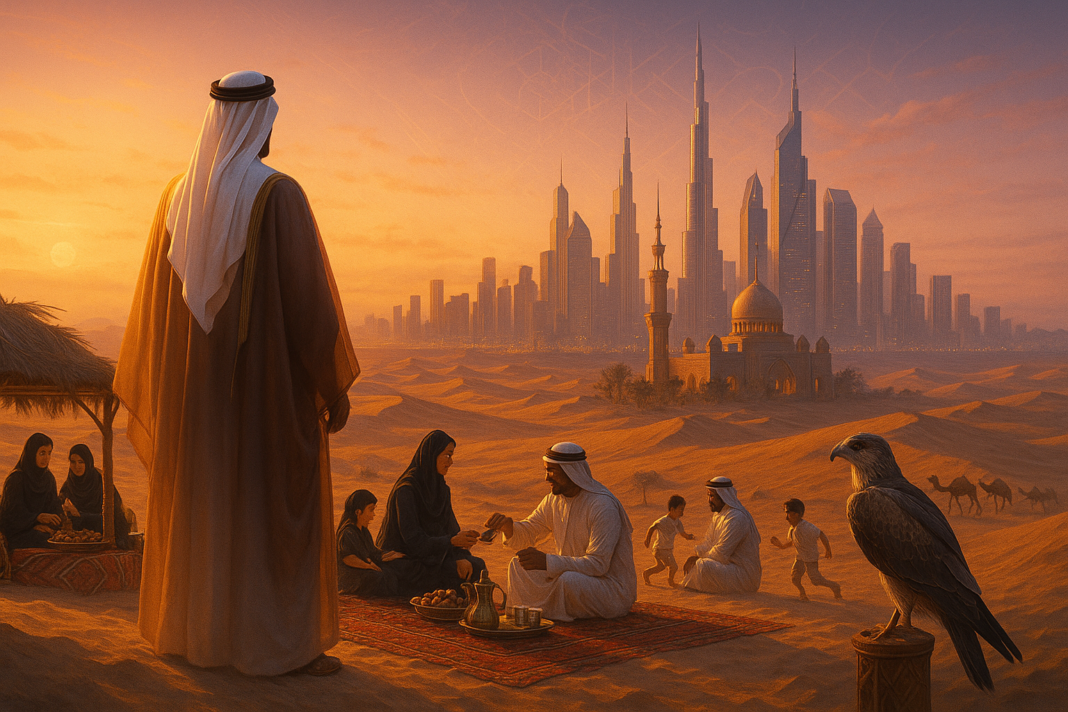“For Emiratis, leadership is not a contract. It is kinship — written in respect, sealed in loyalty.”
More Than Politics, A Family Bond
To many outsiders, loyalty to rulers is seen as political duty. But in the UAE, it is something far more intimate. Leaders are not only decision-makers — they are seen as “fathers of the nation.”
This language is not symbolic flattery. It reflects a deep cultural truth: in Emirati tradition, leadership and fatherhood are intertwined. A father protects, provides, and guides. A leader is expected to do the same — only for an entire people.
The Tribal Roots of Leadership
Long before the Union, tribal structures defined the desert way of life. A sheikh was chosen not only for strength but for wisdom, generosity, and courage. His tent was always open. His wealth was measured not by what he kept, but by what he gave away.
These tribal codes still shape modern leadership. When Emiratis refer to their rulers as “fathers,” it is because they see them continuing the same protective role — not distant authority, but close kin.
Loyalty Forged in Vision
Since 1971, Emiratis have witnessed leaders transform their country from scattered desert settlements into a global hub of ambition. Skyscrapers, universities, airports, and space programs are not just infrastructure — they are acts of guardianship, investments in the future of every Emirati child.
This visible, lived improvement creates loyalty not out of fear, but out of gratitude and trust. To disobey or disrespect such leadership would feel, in Emirati culture, like dishonoring one’s own father.
Modern Fatherhood in Governance
Today, UAE leaders balance global modernity with traditional paternal roles. They are seen:
-
Providing security — ensuring stability in a turbulent region.
-
Investing in children’s futures — from scholarships to cutting-edge research.
-
Protecting heritage — funding museums, poetry festivals, and falconry centers to keep memory alive.
This is why loyalty here is not transactional. It is familial, rooted in identity and continuity.
Why It Matters
Understanding this bond explains the extraordinary unity of the UAE. Where other nations debate politics with division, Emiratis approach leadership as they would approach family — with respect, patience, and belonging.
The skyscrapers may define the skyline, but the nation’s stability rests on something less visible: the belief that leaders are fathers, and citizens are children of the same household.

